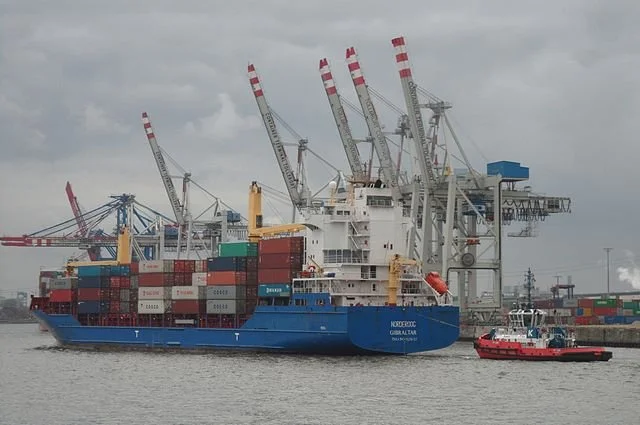Only Diplomacy Can Prevent a New Iron Curtain
Guest article written by Matúš Trubač.
The talks at the Belarusian border are a step in the right direction for tackling the conflict in Ukraine. Sweeping economic sanctions, political isolation, and indirect military involvement will not stop the conflict. At most, they will contribute to the setting of a new iron curtain on Europe, a scenario that likely even Putin doesn’t want. Instead, both sides need to find a way to the negotiating table.
General economic sanctions are unlikely to significantly damage Russia. Having learned from the intervention in Crimea and other past conflicts, Russia had amassed nearly $640 billion in gold and foreign exchange reserves. It is the 4th highest holder of forex reserves, even though its nominal GDP is only the 11th highest globally, and its central bank is now using these to buy up the ruble and prop up its value.
In contrast to the US or much of Europe, the Russian economy is almost entirely self-sufficient in the sectors where it matters. It supplies its own oil and gas, has a healthy agricultural self-sufficiency rate, possesses plenty of raw materials, and boasts one of the world’s best defence and aerospace industries. It has also seen a significant dip in foreign corporate lending in comparison to 2014; Putin has been gradually decoupling most of Russia’s economic sectors from the West. Despite public pledges to renewability, 40% of Europe’s natural gas is still imported from Russia, and the value is much higher for countries in Eastern Europe. While this is a far cry from Europe’s past dependency on Russian oil and gas, Russia has been diversifying its exports to China, whose demand is only growing and can make up for the potential loss of EU markets.
As it stands, in Europe a megawatt-hour of natural gas costs nearly ten times what it did a year ago – gas and oil sanctions would likely hurt it more than Russia. It also bears mentioning that cutting off gas and oil exports to Europe remains to be a viable option for Russia. It has approached this strategy in the past, and one also shouldn’t forget Russia’s love for scorched-earth tactics.
Sanctions on oligarchs and other prominent figures are always a double-edged sword. Asset-freezing and economic isolation mean reduced capital mobility, likely making them even more dependent on Putin and the Russian domestic economy. Russia is insulated against Western sanctions for the foreseeable future. At most, they will disproportionately hurt the ordinary Russian and contribute to Russia’s isolation, which may play into Putin’s hands.
While international media and politicians lambasted Putin’s long speech which essentially denied Ukraine’s claim to nationhood, their critique amounts to nothing more than empty talk. Others have pointed out the hypocrisy in this critique, arguing that Western politicians, particularly in the US, fail to apply the same logic to Palestinian nationhood. In any case, Ukrainian history and self-determination are obscure to most Westerners, largely ignored by news outlets, and so closely intertwined with Russian history that the whole debate becomes circular and never-ending. Lastly, the widespread international condemnation that we are seeing could potentially backfire. It only plays into Putin’s attempts to demonise the West and thus solidifies his rule.
While the bravery of Zelenskyy, his colleagues, Ukrainian soldiers, and civilians is commendable, it cannot emulate Ukraine’s military. Russian forces encircled the country with military personnel that dwarfs Ukraine’s army. Add the Belarusian army and Chechen death squads to the mix, and it becomes apparent that, without direct military assistance, Ukraine is cornered and stuck on the defence. In two days, the Russians reached Kyiv’s outskirts, and at this pace, the capital’s odds do not look good. Capturing Kyiv would allow Putin to execute his forceful regime change and thus lend more legitimacy to his calls for a Ukrainian surrender.
Without direct military assistance, the conflict will likely pan out in two ways.
In the first scenario, Russia occupies Kyiv and executes a regime change, bringing an end to hostilities. Ukraine is turned into another Belarus, with Russia becoming vilified and more isolated by the West. Sweden and Finland flirt more with the idea of joining NATO, and likely commit to more bilateral military treaties. However, a dangerous precedent is set. If Russia is sufficiently insulated against political and economic isolation from the West, and it looks like it is, what is stopping it from conducting a similar ‘special military operation’ in Georgia, and perhaps more neighboring states down the line?
The other outcome is a protracted guerrilla or conventional conflict that could drag on for years. Russia can claim to have installed a new de jure regime, but it doesn’t have de facto control over Ukraine, where the unwavering Ukrainian populace and military, equipped with Western supplies, mount a strong resistance, especially in Western regions of the country. The consequences may be catastrophic; a humanitarian disaster and extremely heightened tensions, and who knows how Europe could react to a conflict, with a size and death toll similar to the Syrian civil war, right on its doorstep.
Does Russia become stronger in either scenario? If Europe and the West persist in and intensify their commitment to isolating Russia, whose annual output is smaller than Italy’s, over time Russia could devolve into a much more threatening North Korea - cut off from the West and important to China geopolitically, but not economically. Outside military involvement is impossible, and indirect assistance can only do so much. Economic and political isolation is hardly ideal. To prevent the new iron curtain from fully descending, both sides need to come to the negotiating table.
Image courtesy of the Ministry Defense of Ukraine ©2014, some rights reserved.
The views and opinions expressed in this article are those of the author and do not necessarily reflect those of the wider St. Andrews Foreign Affairs Review team.



